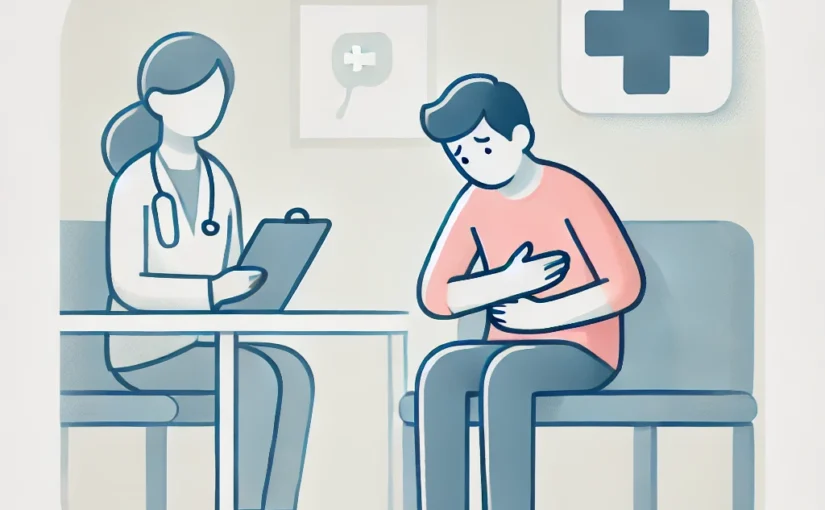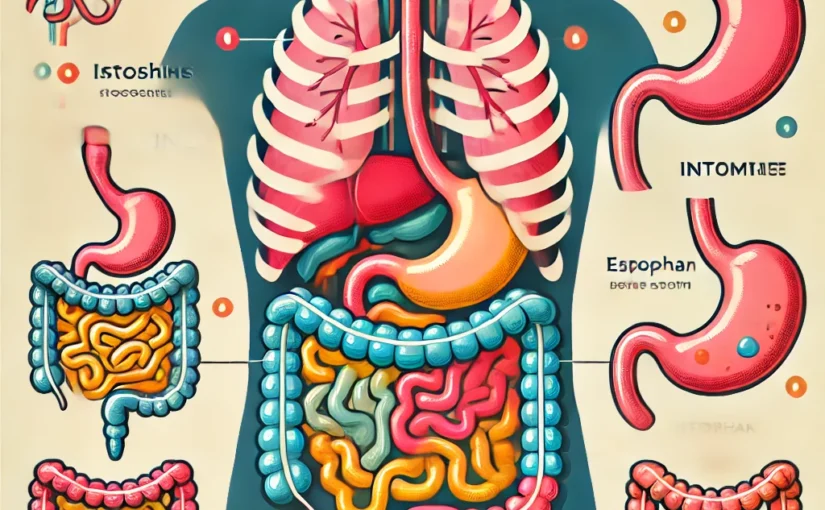Stomach cancer, or gastric cancer, is a serious condition that can often be treated effectively if detected early. While early stages may not show significant symptoms, there are warning signs to watch out for. Below are common symptoms and tips on when to seek medical advice.
Symptoms of Stomach cancer
- Indigestion
Persistent indigestion or bloating that doesn’t improve over time. - Heartburn or Acid Reflux
Frequent heartburn or acid reflux that worsens over time. - Upper Abdominal Pain
Pain in the upper stomach, especially after meals. - Nausea or Vomiting
Unexplained nausea or frequent vomiting after eating. - Unexplained Weight Loss
Significant weight loss without any changes in diet or exercise. - Black or Tarry Stools
Black stools or visible blood in stools could indicate gastrointestinal bleeding. - Loss of Appetite
A sudden decrease in appetite or disinterest in eating.
When to See a Doctor with Stomach cancer symptoms
If any of the above symptoms persist for more than two weeks or worsen, it’s essential to consult a doctor. You should seek immediate medical attention if:
- Indigestion is accompanied by weight loss or severe fatigue.
- You notice black stools or blood in vomit.
- Vomiting becomes frequent and causes dehydration.
- You have a family history of stomach cancer, even with mild symptoms.
Diagnostic Procedures, Stomach cancer
The most effective way to diagnose stomach cancer is through an upper endoscopy. This allows the doctor to visually examine the stomach lining and perform a biopsy if necessary.
- Importance of Early Detection
It has a significantly higher survival rate when detected early. Don’t hesitate to see a specialist if you notice unusual or persistent symptoms.
Tips for Prevention
- Regular Screenings: If you’re over 40 or have a family history of it, regular endoscopic screenings are crucial.
- Healthy Eating Habits: Reduce your intake of salty and processed foods while increasing fresh fruits and vegetables.
- Avoid Smoking and Excessive Alcohol: Smoking and heavy alcohol consumption are major risk factors for stomach cancer.
Key Takeaways
Paying attention to your body and acting promptly on warning signs can save your life. Early diagnosis is key to effective treatment. If you or someone you know experiences symptoms of stomach cancer, schedule a medical check-up as soon as possible.

